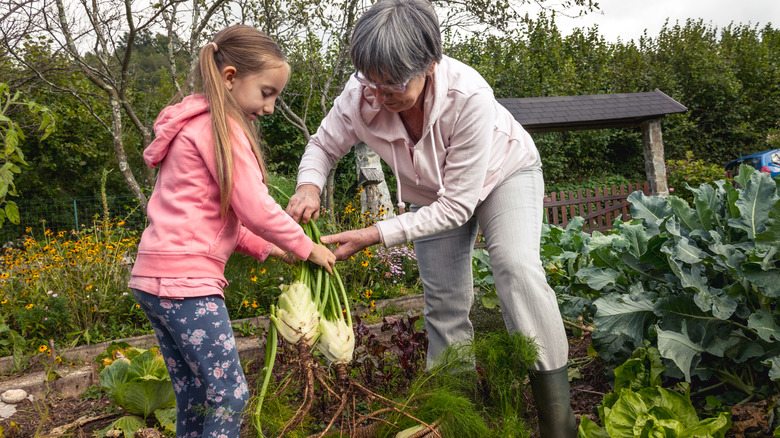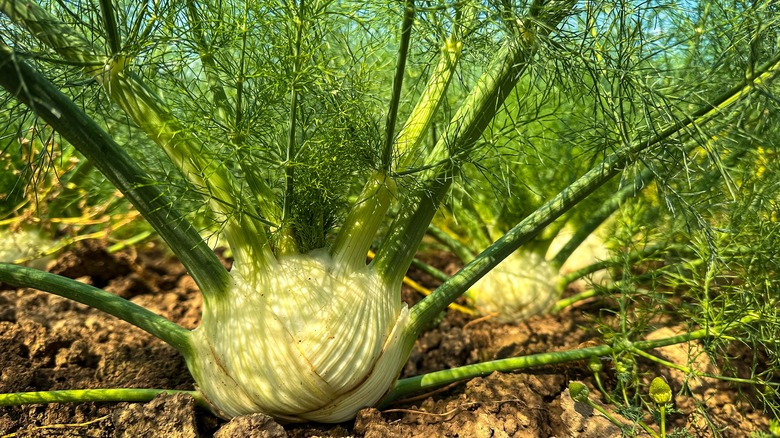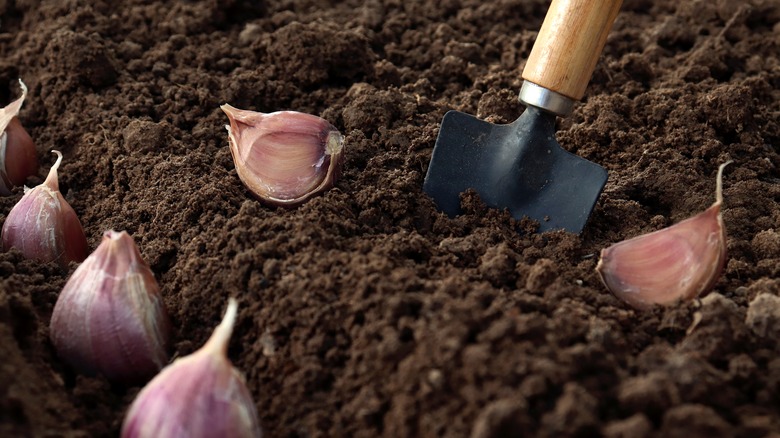Why Fennel And Garlic Aren't Companion Plants In The Garden
Fennel is an intriguing addition to any garden. It's a drought tolerant plant that serves as both a vegetable and an herb. Once harvested, the entirety of the plant can be utilized in a multitude of dishes, both raw and cooked, and its mild licorice flavor will change based on the chosen cooking method. Pair fennel with garlic in a recipe, and you'll get a winning combination that delights even the pickiest of palate. Pair the two in your garden, however, and you could ruin garlic's appealing flavor or even stunt the plant's growth altogether.
The reason for these growing pains lie with fennel. It's known as an allelopathic plant, and one of the defining features of such a plant, according to the Molecules, is the ability to defend itself against its competitors. Essentially, fennel will give itself the best chance of survival by preventing any and all neighboring plants from establishing strong roots or obtaining nutrients for continued growth. If a nearby plant happens to produce a crop, its flavor could be negatively changed by the fennel.
Best options for growing your own fennel
Despite its finicky nature, fennel is an excellent produce to keep in the kitchen, and its versatility in both taste and usage is more than enough reason to try growing your own. Just know from the start that this plant is a lone wolf. Your best plan of action is to grow fennel in a deep container by itself. That way, it'll have its own soil to inhabit and won't need to worry about competition.
Some gardeners may tell you that dill is a perfectly acceptable companion plant to fennel. While the bright, delightful herb can help stabilize the allelopathic effects of fennel, there's a real risk of cross-pollination. When that happens, you could be left with a couple of odd-tasting hybrids.
If you prefer to plant fennel directly in the ground, leave at least a few feet between it and the rest of your seeds. It prefers full sun and a good amount of water. Treat it right, though, and you'll be rewarded with sprouted fennel in spring and fall.
Garlic is a near-perfect planting partner
As far as good neighbors go, the difference between fennel and garlic is night and day. Garlic is a near-perfect companion plant for a number of vegetables, flowers, and herbs. Unlike fennel, garlic can actually encourage growth from its friends and protect nearby plants from disease. The pungent plant also helps deter the bad pests while attracting the good ones.
The list of garlic's preferred planting partners is vast. Some of the more popular options include members of the cruciferous vegetable family, such as cauliflower, broccoli, and cabbage, and root vegetables like potatoes and carrots. Hearty kale is another good option; you can never go wrong with the delectable combination of tomato, basil, and garlic.
Those now wanting to grow their own garlic are in luck as its two main varieties, hardneck and softneck, can grow in almost every gardening zone. Hardneck is a strong, almost spicy garlic variety that can survive harsh winter weather. Softneck garlic, on the other hand, is softer in flavor and prefers warmer weather. The latter is what we're used to seeing in grocery stores.


